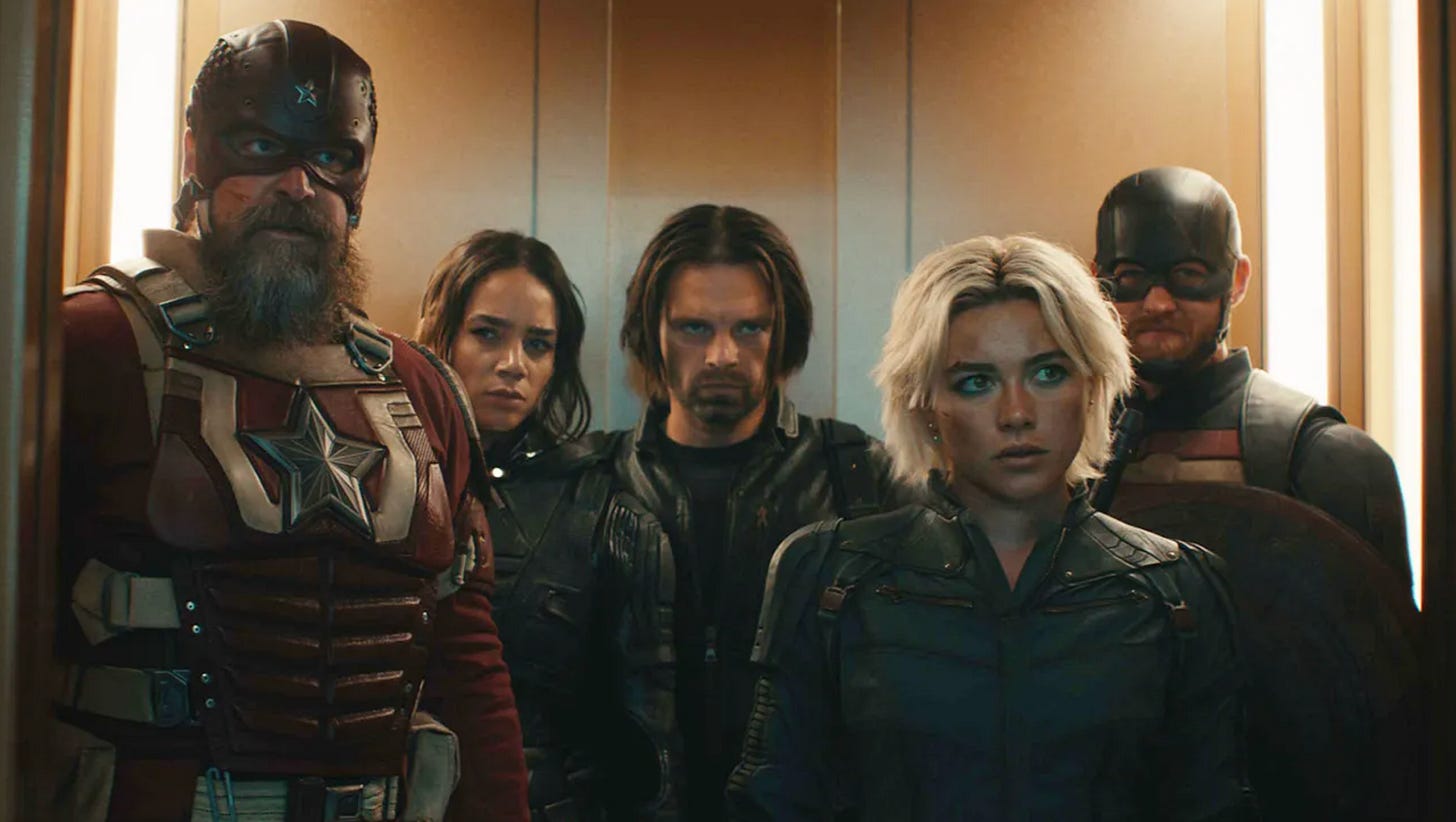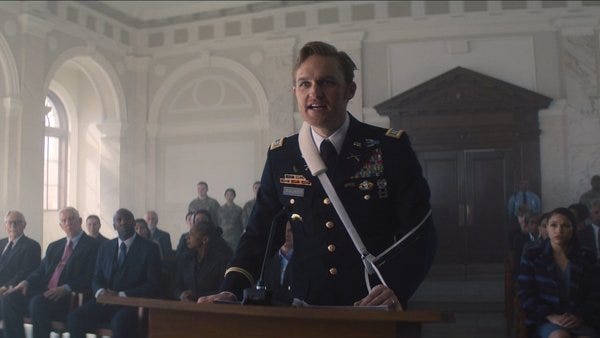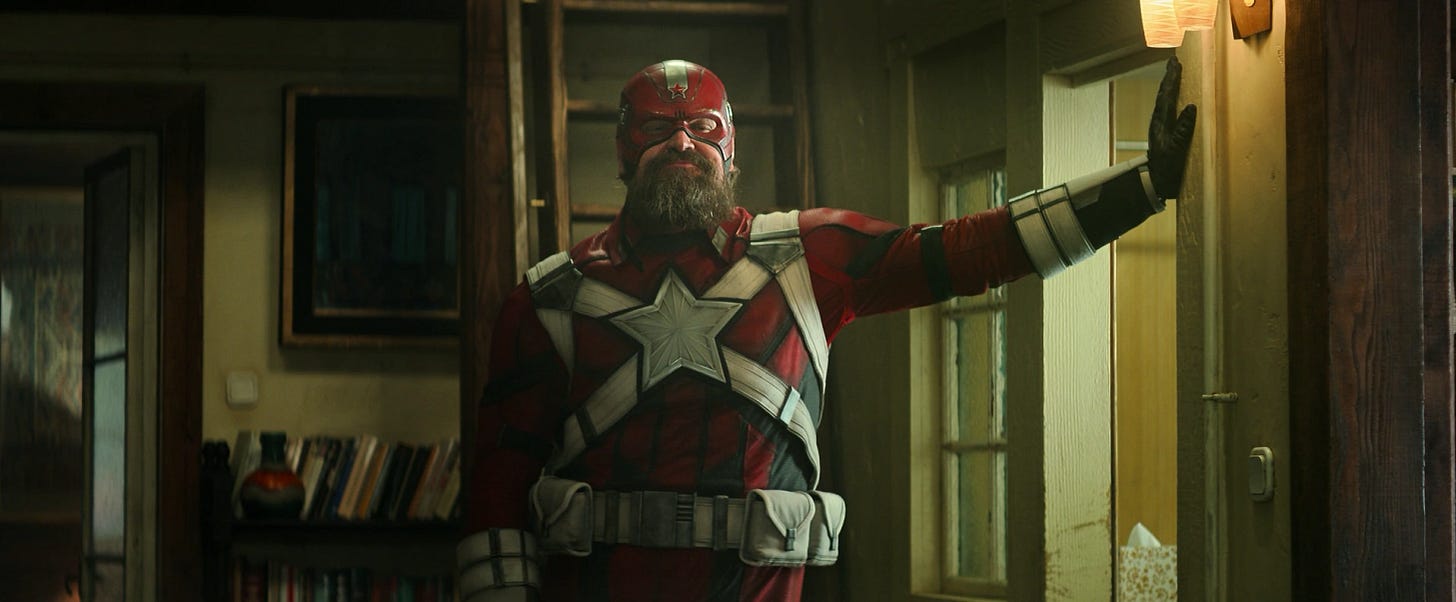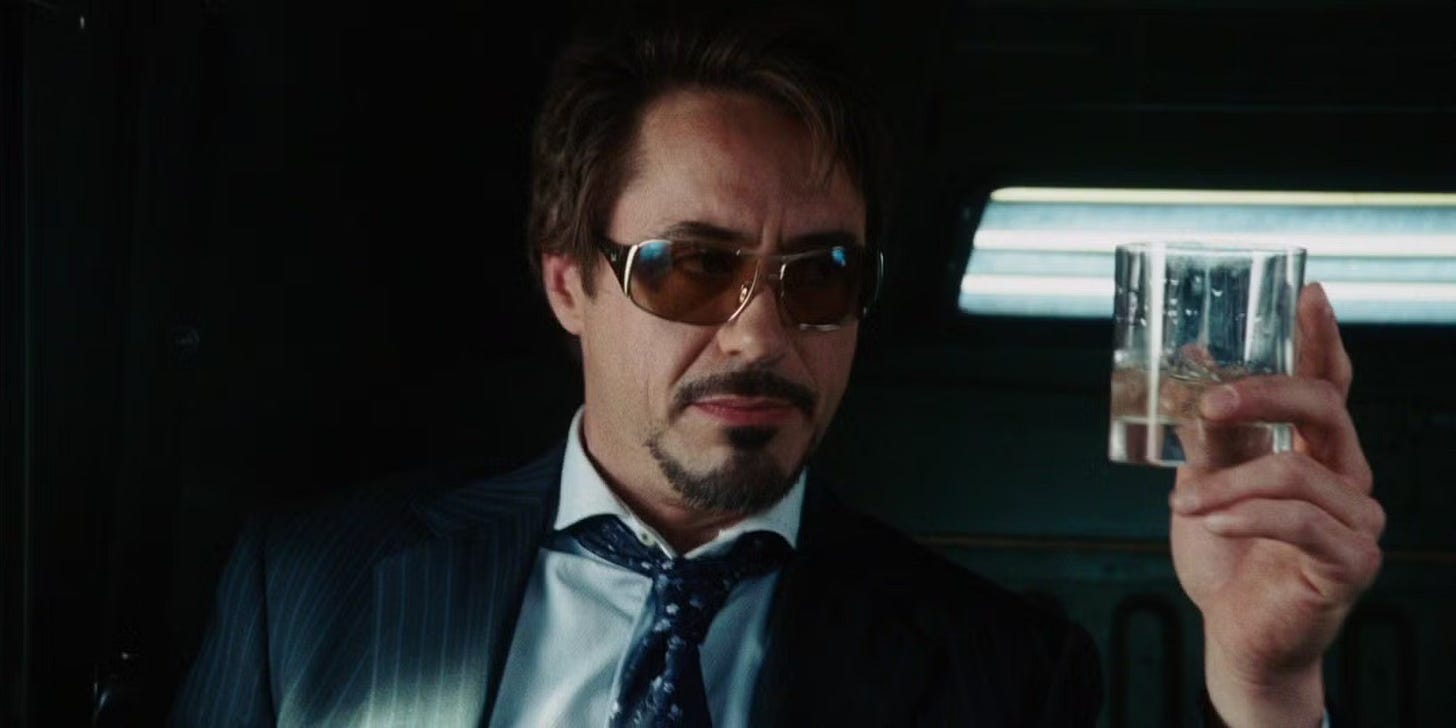THUNDERBOLTS*: A Dangerous Dance With Propaganda?
Now Isn't The Time For Soviet Superheroes To Inspire Us
The MCU is back with one of its most buzzed-about films in years—Thunderbolts*. Critics are fawning over its stripped-down tone, supposed emotional depth, and grounded feel, in contrast to the recent CGI-saturated chaos that has plagued Marvel’s output. But amid the praise, few seem willing to engage with the film’s deeply problematic subtext.
Because here’s the uncomfortable truth: Thunderbolts* wants you to cheer for a murderer in Captain America’s boots—and a team of Russian operatives wrapped in the sheen of reluctant heroism.
There is a moral rot under the surface of this film—and failure to recognise it says something about the United States’ continued shifting moral compass.
John Walker: Captain America by Way of Trump
John Walker, played by Wyatt Russell, is not new to the MCU. He debuted in The Falcon and the Winter Soldier as the government’s choice to succeed Steve Rogers. But Walker is no Steve Rogers—he’s a soldier with a hair-trigger temper, a warped sense of duty, and zero accountability. On paper, that’s an interesting concept to explore. In execution, it failed when Walker became a cold-blooded murderer.
The most infamous moment? In Episode 4 of that series, Walker’s closest friend is killed by a member of the Flag Smashers. Fueled by rage, he hunts down a member of the group—not the one responsible for his friend’s death—and publicly beats the man to death with Captain America’s shield. The image of a blood-soaked symbol of justice reverberated across the internet. It wasn’t just a murder—it was a desecration.
There’s a version of this story that could have worked and been compelling and challenging in a Frank Castle sort of way. But Marvel is rarely compelling or challenging today. Like death, nothing really matters in this bouncy castle world.
Instead of facing lasting consequences, Walker is court-martialed and then quickly repurposed by shadowy interests and becomes the “U.S. Agent.” Because, in today’s world, accountability is negotiable—especially if you’re still useful to the powerful. Sound familiar?
Walker’s entire arc is disturbingly Trumpian. When he is court-martialed, all he does is deny fault, project blame, deflect outrage, and walk away with a promotion, working for Valentina Allegra de Fontaine, the director of the CIA.
Daredevil: Born Again season 1 explored dirty politics and power-tripping bent cops who murder in cold blood—and guess what, they are the villains. While the show, Falcon and Winter Soldier, might’ve tried to comment on the dangers of glorifying military power and a lack of moral foundations, Walker doesn’t walk away a changed man. He remains a bad guy. This isn’t a redemption arc—it’s an indictment of America’s tolerance for unchecked violence under the guise of patriotism. Walker violently murdering someone and only getting a slap on the wrist is not the right message Marvel should be sending, unless they accept this character is, and forever will be, a bad guy… but that’s not happening.
Now the guy who desecrated Captain America’s shield is teaming up with a literal relic of Soviet propaganda in order to take out the corrupt head of the CIA (wrap your brain around that!), and we’re meant to accept him as a lovable anti-hero and root for him in Thunderbolts*? I think not. At least DC’s crappy Suicide Squad (2016) understood the team is comprised of outright villains who are in prison, serving time for their crimes.
The Soviet Heroes the MCU Wants You to Love
If John Walker is one problem, this Thunderbolt is arguably worse.
Red Guardian, played by David Harbour, is a glaring issue, despite Florence Pugh’s Yelena Belova also being a Russian sleeper agent. Red Guardian was the Soviet Union’s answer to Captain America—literally engineered as a symbol of Soviet power and anti-Western ideology.
Red Guardian may be played for laughs, with his wistful tales of Cold War glory and bruised ego, but make no mistake—his entire existence was crafted as a weapon of state propaganda. He refers to Captain America as his great nemesis, makes comments about Black Widow being indoctrinated into the ‘Western agenda.’ Hardy, har har… This character leans into his nostalgia as a harmless delusion, but the context cannot be ignored: he’s a symbol of a regime that stood in direct ideological opposition to Western democracy. He is the anti-Captain America. He is anti-American. He is not an American hero. He’s not a Western hero.
Let’s put it another way. Imagine the outcry if the MCU centered a heroic arc around a Nazi super soldier who still wore the uniform “for old time’s sake.” Well, swap out “Nazi” for “Soviet” and suddenly it’s quirky? Romanticised? Harmless Cold War kitsch?
Dear lord.
The MCU’s attempts to sidestep the real-life implications of this character are deeply troubling—especially when Russia is actively waging war in Ukraine, meddling in Western democracies, and whitewashing its past through modern disinformation.
I mean, my God, the main villain is the Director of the CIA, who needs to be taken down by… a Soviet and a dirty ex-military officer? This feels utterly misguided.
The MCU has always played with morally grey figures. From Tony Stark’s arms-dealer-turned-hero to Bucky Barnes’ recovery from brainwashed assassin, redemption arcs can work when grounded in accountability and real character growth.
But Thunderbolts* doesn’t wrestle with its characters’ pasts—it embraces them. It plays them for giggles for a moronic tiktok audience who aren’t paying attention to the what they are actually engaging with. Red Guardian is never forced to reckon with the regime he served. John Walker is never made to confront the moral collapse he embodies. And audiences are expected to root for this ragtag band of misfits as though their pasts are just flavour, not a fundamental part of their identity.
At a time when authoritarianism is on the rise, and real-life Russia is committing atrocities on the world stage, centring a heroic narrative around its fictional legacy—and pairing it with a corrupt symbol of American power—feels tone-deaf. It feels dangerous.
Heroes We Can’t Afford
The Thunderbolts* are meant to be the MCU’s version of the Suicide Squad—flawed anti-heroes doing good against the odds. But context matters. And right now, Western audiences are being asked to cheer for:
A government-trained murderer in a knock-off Captain America costume,
Russian state operatives with zero remorse for their origins,
And a team that collectively represents the erosion of moral clarity in both fiction and reality.
Marvel lacks the skills and cleverness to explore these topics and characters with any amount of intelligence, conviction, or nuance. To quote RedLetterMedia, they want you to “Don’t ask questions, just consume product.” That is an uncomfortable reality.
The issue Marvel has is its inability to delve deeply into these characters and address their flaws in a meaningful way. Dare I say it, most MCU writers don’t have the skill or knowledge to be able to do anything other than surface-level gags.
We all fawn over a lovable rogue like Jack Sparrow or Deadpool. We love stories of conspiracy like the Bourne novels and films. For many, Thunderbolts* is just a fun time at the cinema, but if you think hard about what you’re watching and who these characters are, it’s a questionable piece of pro-Russia propaganda and Trumpian ideology that goes unchecked. That’s troubling. Is that really where Marvel wants to go? It sure as hell isn’t where I want to go.







